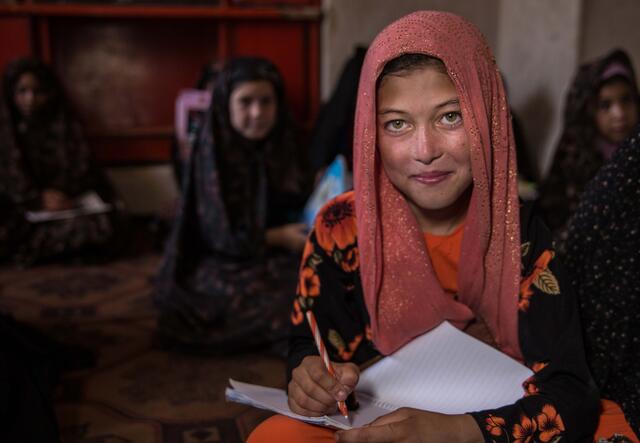
The International Rescue Committee began work in Afghanistan in 1988. Our programmes span eight provinces and reach millions, with additional support provided to Afghans who have fled to neighbouring countries or who have been resettled in the United States.
As the current crisis intensifies, our staff—99% of whom are native Afghans—will continue this critical work. Below, explore the ways that the IRC helps in Afghanistan:
Critical information
Our global Signpost programme, a suite of digital tools, provides accurate and trusted information in multiple languages for people in crisis or fleeing conflict. These critical services have reached over a million refugees, asylum seekers and crisis-affected communities in Colombia, Greece, Italy and El Salvador, to name a few locations.
In Afghanistan, we plan to offer Signpost in Dari and Pashto, the most widely spoken languages in the country, to share information about resettlement, including information for individuals who helped U.S. programmes or troops.
Cash assistance
Cash assistance, one of the most effective and efficient forms of aid, allows families to decide for themselves what they need the most. Our initial response will focus on providing food, water and shelter for people who have fled to Kabul. We plan to help families buy essential goods and services once banks and other institutions reopen.
Outside of Kabul, we hope to reach communities in need across affected provinces, including locations heavily affected by conflict. Among our priorities are farmers in need of cash to harvest and send crops to market.

Health
Afghans are experiencing a rapid decline of existing health services in addition to COVID-19. We will help by setting up mobile clinics and offering online support to district level clinics. Our health programmes will also address the needs of women and girls, including maternal health care.
Education
Education can be a lifeline for children in crisis or conflict, helping them to cope and to build a brighter future. In Afghanistan, we will provide safe, healing learning spaces to the tens of thousands of displaced children missing school because of conflict and COVID-19.
These spaces will offer psychological and emotional support on top of basic literacy and math instruction. They will also provide clean water and sanitation for children whose families have been uprooted.

How you can help
Donations from individuals, companies and foundations are critical to meet the needs of those affected by the crisis in Afghanistan. The IRC is appealing for much-needed funds to ensure our teams deliver lifesaving aid in conflict areas. Find out other ways you can help people in Afghanistan.